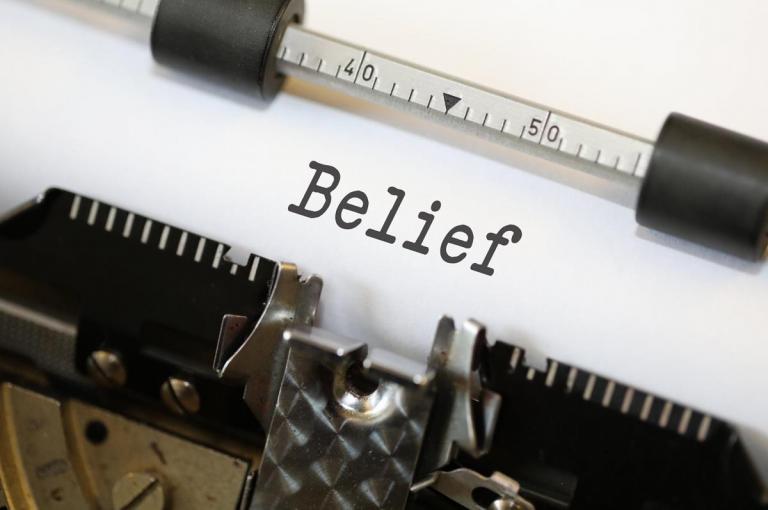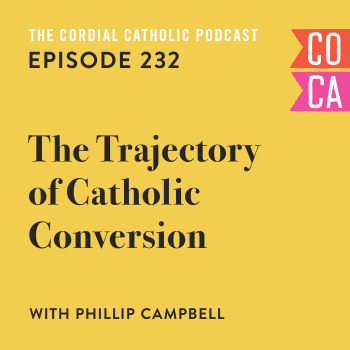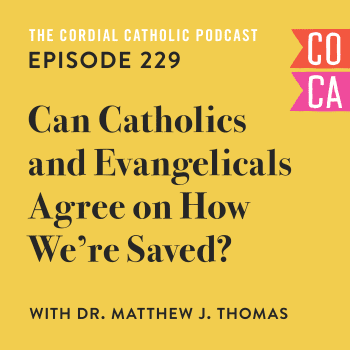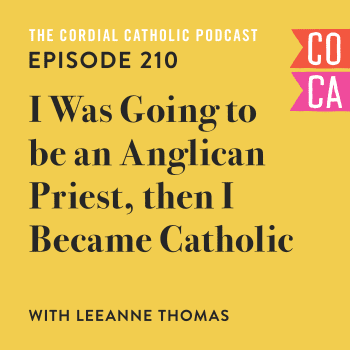
I remember hearing an interview with Jennifer Fulwiler years ago where she talked about her transition—conversion—from Atheism to belief. From a scientific, willfully godless lifestyle to living a full and pious Catholic life. The crux of her conversion, if I remember rightly, was the birth of her first child. Starting down at the bonafide miracle of life in her arms she felt a deep sense of gratitude and joy. That’s to be expected. But, she said, as an atheist she had no outlet for those emotions. There was, in her godless worldview, nothing to be grateful to.
The baby in her arms, she reflected, was truly nothing more than a collection of atoms, molecules, DNA code, created and guided by a simple biological process which began when a star exploded. Or, at least, that’s what she’d thought.
But staring down at her baby she realized that she felt gratitude; she felt thankful; she felt a deep sense of appreciation for the gift she’d been given—and it felt like a gift. But from whom?
Seeking the answer to that question led Jennifer into the Catholic Church, and the rest is history.
Lately, I’ve been feeling similar.
As my wife heads back to full-time, gainful employment I begin a year of being a stay-at-home dad with two kids in tow. And I’m deeply grateful. I’m grateful that I have a job I can take a sabbatical from. I’m grateful that we have a home and a budget and a lifestyle that we can sustain on my wife’s single income. I’m grateful that I can be home to hang out with two of the goofiest people I know every day, and that we can all rush like a crash of rhinoceroses to the front door when our Mama finally returns at the end of the day, bringing some semblance to our motley crew.
But what is the root of my gratitude? For the gift of a job and a house and a family, who do I really need to thank?
Do I thank myself for working hard through university, teacher’s college, and then for years in the classroom to get to where I am today? Do I thank my wife and myself along with our admittedly wonderful realtor for all the hard work of finding us a lovely, affordable house in a good neighbourhood? Do I thank my Grade 10 business teacher and my father’s life long dedication to financial management for imparting me with great budgeting skills? Do I thank eating well and exercise for my health? Medical science for my children? Centuries of careful domestication, breeding, and training for my affable dog?
The perennial dilemma of the atheist or even the casual non-believer is what to do with these feelings.
Who do atheists have to thank? And why do we feel a need to thank at all?
Because no matter how deep down I dig in search of the root of all my gratitude I cannot find it. I am grateful, it turns out, to something beyond even when I can logically understand. I cannot find the ultimate root—a home for my gratitude to roost apart from a belief in a greater, a higher power, in God.
Philosophy calls this the “Argument from Desire,” and it is a well-established tradition in itself: if I desire something then it must exist. And, on the flipside, we cannot desire anything that does not, or cannot, exist. Therefore, runs the argument, if I feel a deeply seated sense of gratitude for my “luck in life” then there must be an object I am feeling gratitude towards. The Christian would answer that this is, of course, God.
But how does the atheist answer?
It’s tricky, at best. And although an argument from desire—a sense of deep-seated gratitude with no outlet to receive it—does not necessarily point to Jesus Christ it does, in the least, point its way to a higher power, a greater, and is a first step on the road to belief. For an atheist like Jennifer Fulwiler, it was just that.












